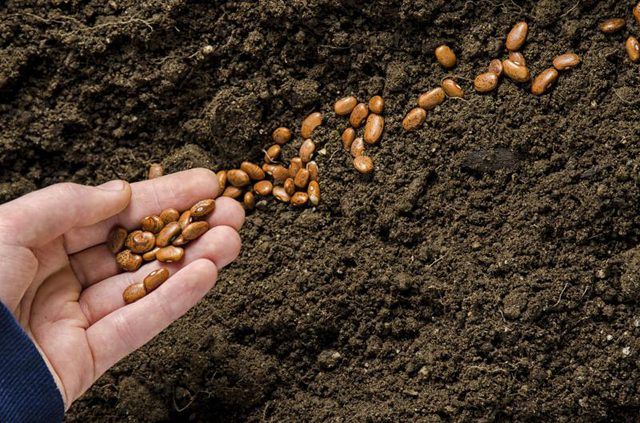Bulbs
Flower Basics
Flower Beds & Specialty Gardens
Flower Garden
Garden Furniture
Garden Gnomes
Garden Seeds
Garden Sheds
Garden Statues
Garden Tools & Supplies
Gardening Basics
Green & Organic
Groundcovers & Vines
Growing Annuals
Growing Basil
Growing Beans
Growing Berries
Growing Blueberries
Growing Cactus
Growing Corn
Growing Cotton
Growing Edibles
Growing Flowers
Growing Garlic
Growing Grapes
Growing Grass
Growing Herbs
Growing Jasmine
Growing Mint
Growing Mushrooms
Orchids
Growing Peanuts
Growing Perennials
Growing Plants
Growing Rosemary
Growing Roses
Growing Strawberries
Growing Sunflowers
Growing Thyme
Growing Tomatoes
Growing Tulips
Growing Vegetables
Herb Basics
Herb Garden
Indoor Growing
Landscaping Basics
Landscaping Patios
Landscaping Plants
Landscaping Shrubs
Landscaping Trees
Landscaping Walks & Pathways
Lawn Basics
Lawn Maintenance
Lawn Mowers
Lawn Ornaments
Lawn Planting
Lawn Tools
Outdoor Growing
Overall Landscape Planning
Pests, Weeds & Problems
Plant Basics
Rock Garden
Rose Garden
Shrubs
Soil
Specialty Gardens
Trees
Vegetable Garden
Yard Maintenance
How to Find Non-Genetically Modified Seeds
How to Find Non-Genetically Modified Seeds. Genetically modified foods are altered by combining the DNA of another organism with a plant to achieve a trait, such as resistance to chemical herbicides or rot resistance. Gardeners who wish to grow organic foods should seek out non-genetically modified seed; many cite biotechnology as a new technology...

Genetically modified foods are altered by combining the DNA of another organism with a plant to achieve a trait, such as resistance to chemical herbicides or rot resistance. Gardeners who wish to grow organic foods should seek out non-genetically modified seed; many cite biotechnology as a new technology that hasn't allowed for long-term testing of the risks and effects of genetic modification.
List of Plants
The number of genetically modified foods on the market is limited, but the percentage of each crop that is affected is high. Those crops available commercially include corn (Zea mays), soybeans (Glycine max), cotton (Gossypium hirsutum), alfalfa (Medicago sativa), canola (Brassica napus), yellow squash and zucchini (Cucurbita pepo), sugar beets (Beta vulgaris) and papaya (Carica papaya). Roughly 90 percent of the United States canola, corn and cotton crops come from genetically modified seed, while the soy and sugar beets crops are closer to 95 percent GMO. The U. S. crop of zucchini and yellow summer squash includes approximately 25,000 acres of genetically modified organisms, while there are roughly 988 acres of genetically modified papaya planted in Hawaii.
Safe Seed Pledge
Seed companies that are committed to selling only non-genetically modified seeds are likely to have signed the Safe Seed Pledge. The Safe Seed Pledge was started by the Council for Responsible Genetics and those who have signed the pledge are listed in its Safe Seed Sourcebook. Not only do these companies promise not to sell modified seeds, they commit to regularly testing their non-GMO seeds to ensure they are of the highest quality. The list includes online-only seed catalogs and can also help locate local seed sources if you prefer to purchase seeds of known plant strains that thrive in your area. If a company has signed the pledge, there is likely some type of acknowledgment in their advertisements, catalogs or signage.
Organic Seed Alliance
Seeds that have been genetically modified cannot be labeled as organic, which means that any seed that is labeled as organic is guaranteed not to be a GMO. Check a company's certification to ensure it is a certified organic company and all its products are likewise certified organic. One of the biggest challenges is the possibility that organic crops can cross-pollinate with neighboring GMO crops, resulting in seed that is affected by the GMO crop. This is why continued testing is such an important part of a company's pledge to remain GMO free and organic.
Local Seed Exchanges
Local farmers and seed exchange groups in your area might prove to be an excellent resource for non-genetically modified seeds. Growers collect the seeds at the end of the harvest, saving them to exchange or sell to other area growers at the beginning of the next gardening season. These groups typically pride themselves in providing organic seed, but it's always safest to check with each source to ensure the seeds are not from genetically modified plants. By seeking out local seed resources, you're more likely to find heirloom seeds from varieties that have been proven to grow well in your area for generations. Heirloom plants are well adapted to the growing conditions in your area, making the genetic modifications unnecessary.